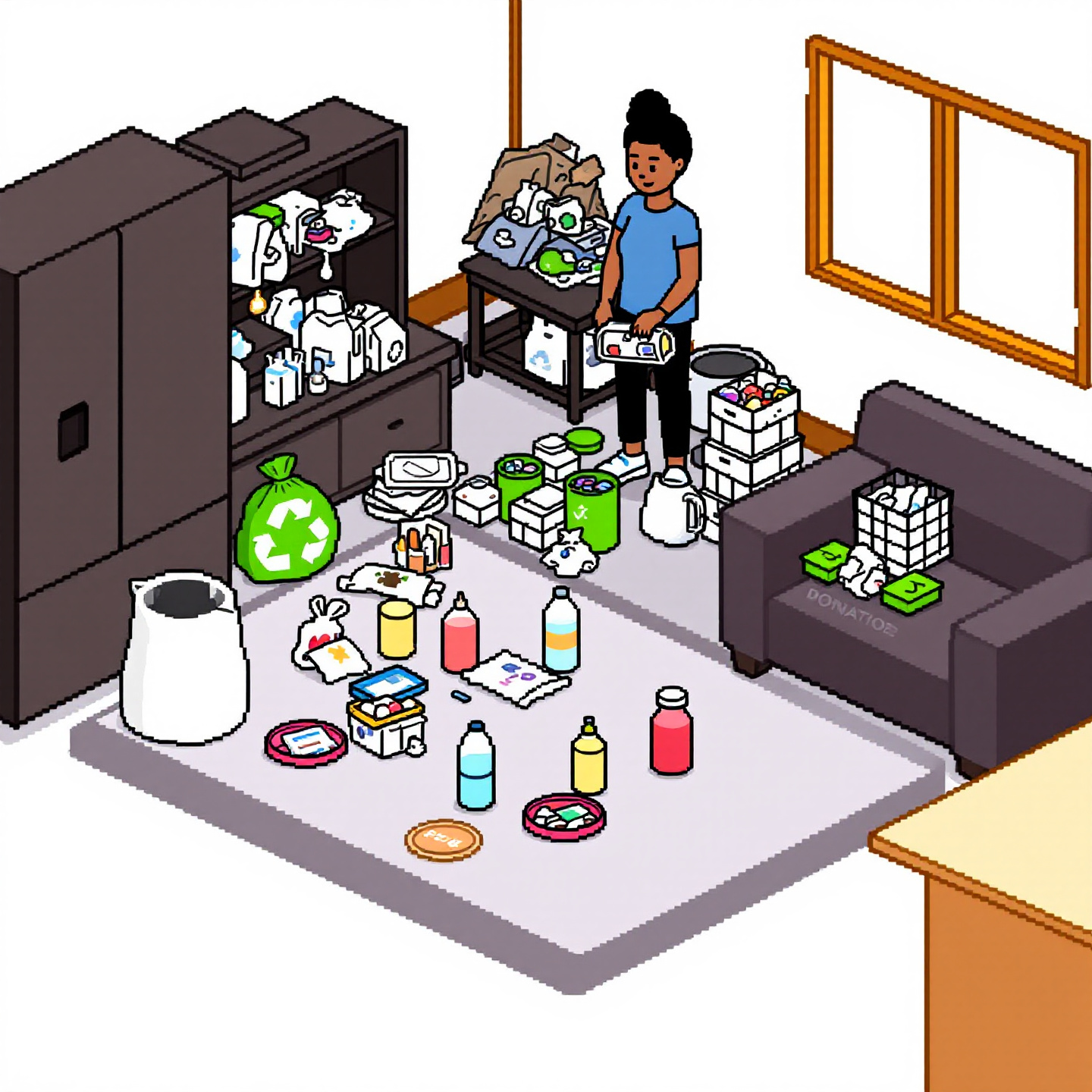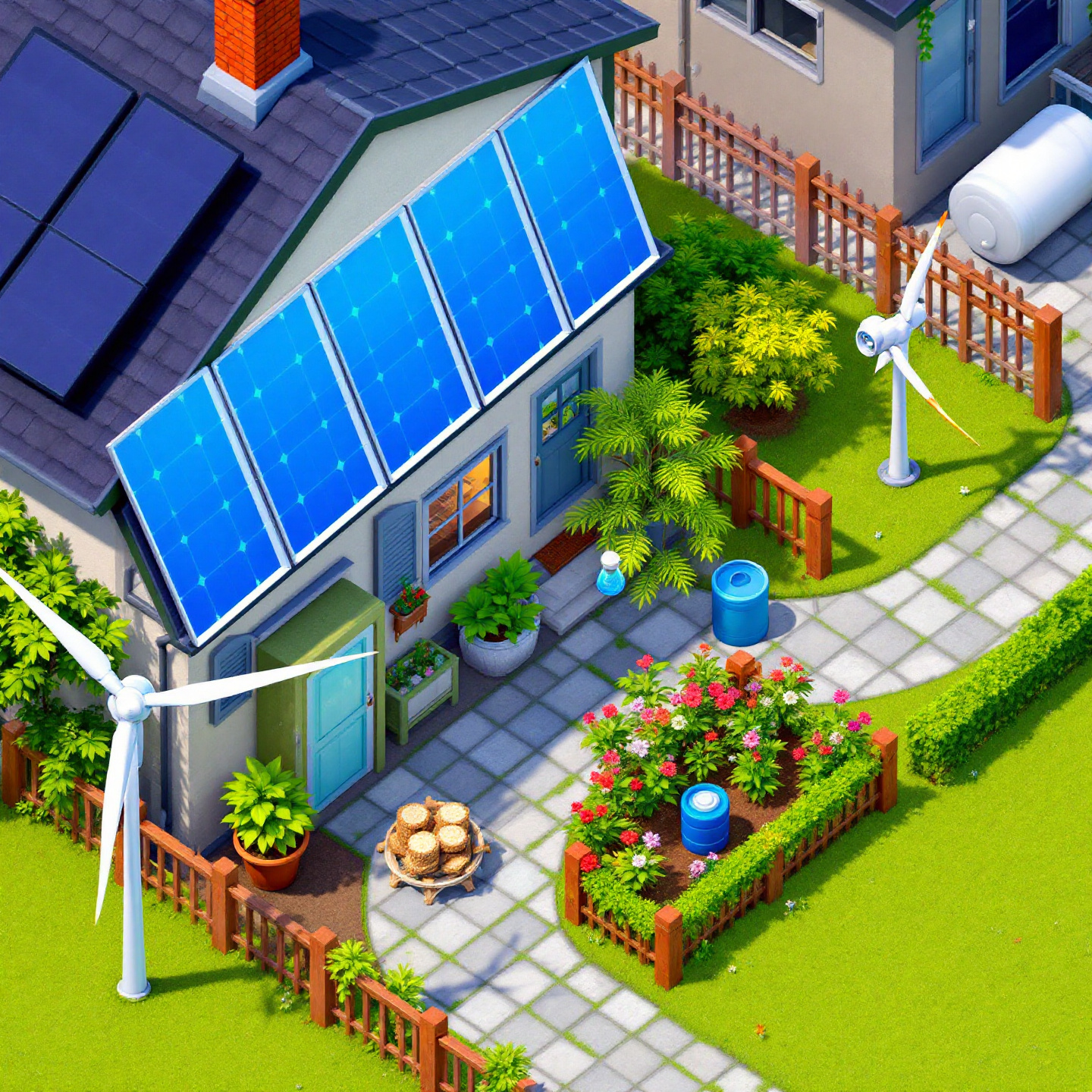How to Create a Zero-Waste Home on a Budget

Step Toward a Greener and Wallet-Friendly Lifestyle
Transitioning to a zero-waste home might sound overwhelming at first, but it’s easier (and more affordable) than you might think. Living sustainably doesn’t just help the planet; it can also significantly reduce your household expenses. By adopting thoughtful habits and making small adjustments to your daily routines, you can cut down on waste, save money, and contribute to a healthier environment. Here’s a comprehensive guide to building a zero-waste home without stretching your budget.
1. Buy in Bulk and Invest in Reusables
One of the simplest and most impactful changes you can make is minimizing packaging waste. Bulk shopping is a game-changer for both your wallet and the environment. Here’s how:
- Find Local Bulk Stores: Seek out grocery stores or co-ops that allow you to bring your own containers to purchase pantry staples like grains, beans, spices, and nuts. Bulk buying often costs less per unit than pre-packaged alternatives.
- Bring Your Own Containers: Reusable jars, cloth bags, or silicone pouches can replace single-use plastic bags. These options are durable and pay for themselves in the long run.
- Ditch Single-Use Plastics: Replace disposable items like plastic water bottles, coffee cups, and shopping bags with reusable versions. Stainless steel bottles, bamboo utensils, and tote bags are excellent investments that reduce waste and save money over time.
2. Transform Your Kitchen into a Waste-Free Zone
The kitchen generates a large portion of household waste, making it the perfect place to start your zero-waste journey. Here are some actionable tips:
- Say Goodbye to Paper Products: Switch from paper towels and napkins to washable cloth alternatives. Old t-shirts or towels can be repurposed as cleaning rags, cutting costs and waste.
- DIY Cleaning Products: Commercial cleaners often come in plastic bottles and are filled with harsh chemicals. Create your own eco-friendly versions using simple ingredients like white vinegar, baking soda, and essential oils. Not only are they affordable, but they’re also safer for your health and the environment.
- Start Composting: Don’t let food scraps go to waste! Composting turns organic waste into nutrient-rich soil for your garden. If you don’t have outdoor space, consider a compact indoor compost bin or vermicomposting (using worms to break down food waste).
3. Embrace DIY Projects and Upcycling
Upcycling and do-it-yourself (DIY) projects are budget-friendly ways to reduce waste and express your creativity.
- Personal Care Products: Many household items can be made at home for a fraction of the cost. For example, you can create your own toothpaste, deodorant, and body scrubs using natural ingredients like coconut oil, baking soda, and essential oils.
- Repurpose Old Items: Before discarding something, think about how it can be reused. Glass jars make excellent storage containers for dry goods, and old furniture can be given a new life with some sanding and a fresh coat of paint.
- Repair Instead of Replace: Learn basic sewing or furniture repair skills to extend the life of your belongings. Fixing items rather than discarding them saves money and reduces landfill waste.
4. Shop Smarter: Choose Secondhand and Minimal Packaging
Shopping with intention is a cornerstone of a zero-waste lifestyle. Be mindful of what you buy and how it’s packaged:
- Choose Minimal or Recyclable Packaging: Opt for products sold in paper, glass, or aluminum, which are easier to recycle than plastic. Whenever possible, buy loose produce instead of pre-packaged items.
- Thrift and Secondhand Stores: Instead of buying new, explore thrift shops, flea markets, or online marketplaces for clothing, furniture, and home decor. These options are often more affordable and support a circular economy.
- Quality Over Quantity: Invest in durable items that last longer, even if they cost a bit more upfront. This applies to everything from kitchen tools to clothing. Over time, these high-quality purchases save money and reduce waste.
5. Adopt Mindful Habits to Reduce Waste
In addition to making physical changes in your home, adopting new habits can further your zero-waste goals:
- Plan Your Meals: Food waste is a major issue in many households. By planning meals in advance and using up leftovers creatively, you can save money and minimize waste.
- Reuse What You Have: Before buying something new, consider whether an item you already own could serve the same purpose. For instance, old jars can store bulk goods or homemade cleaning solutions.
- Educate and Involve Your Family: Share your zero-waste goals with your household. Make it a family effort to recycle properly, compost, and reduce overall consumption.
6. Explore Community Resources and Sharing Economies
Reducing waste doesn’t always mean going it alone. Tap into your local community for additional support and resources:
- Tool Libraries and Rental Services: Instead of purchasing items you rarely use, such as power tools or party supplies, check if your area has a tool library or rental service.
- Community Swaps: Participate in clothing or item swaps where you can exchange goods with others. It’s a fun way to refresh your wardrobe or home without spending a dime.
- Farmers’ Markets: Support local farmers by buying unpackaged, fresh produce. Many farmers’ markets encourage customers to bring their own bags and containers, further reducing waste.
Why Zero-Waste Living Makes Financial Sense
A zero-waste lifestyle isn’t just about reducing environmental harm—it also has real financial benefits. By cutting down on single-use products, embracing reusable alternatives, and focusing on secondhand and DIY solutions, you can significantly lower your household expenses. Over time, the savings add up, allowing you to allocate money toward other priorities, like travel, hobbies, or savings.
Your Zero-Waste Journey Starts Now
Creating a zero-waste home doesn’t require a big budget or drastic lifestyle changes. With small, consistent steps, you can make a meaningful impact on the planet while improving your financial well-being. Every effort counts—whether it’s composting kitchen scraps, swapping disposables for reusables, or shopping secondhand. By embracing this sustainable approach, you’re not only contributing to a greener future but also inspiring those around you to do the same.
So why wait? Start your zero-waste journey today and take pride in living sustainably, one budget-friendly step at a time.


